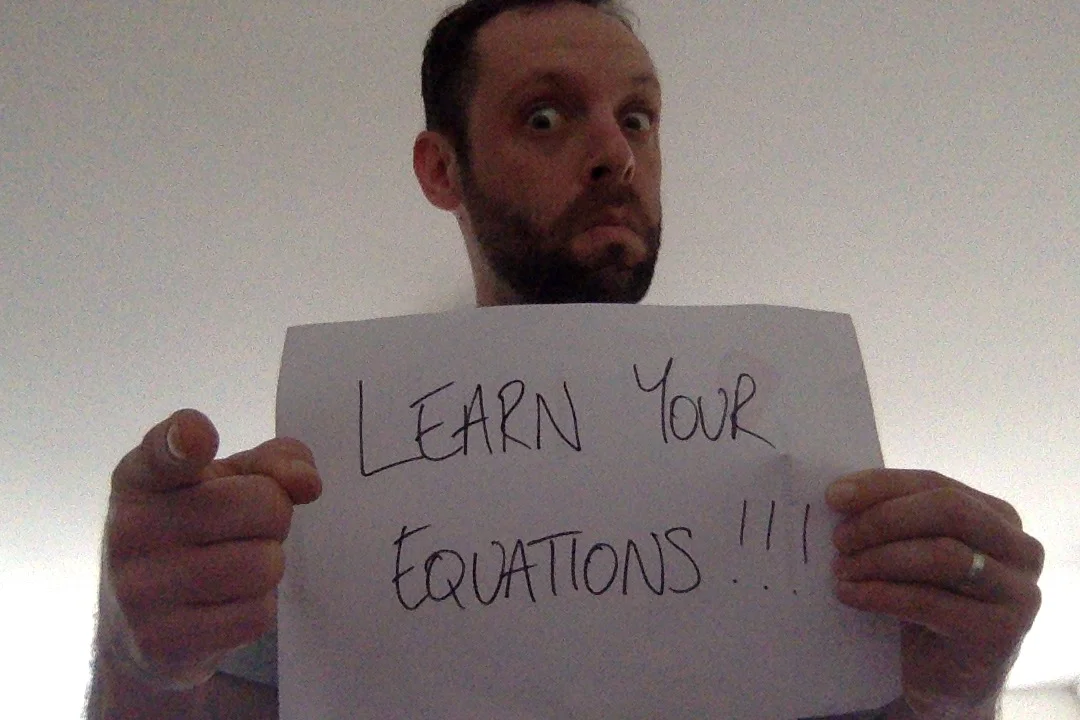Every year, the Association of Science Education (ASE) hosts one of the largest science education conferences in Europe. Last week, I went to get my fix of the latest research and practice, seeing too many talks to relate them all but for my first blog of the year I will write about the top four things I took away from it. Naturally, the talks I went to reflected my interests: using evidence based interventions, using arts and discussion based interventions to foster engagement and deep learning, and to communicate science in a way that addresses inequality. As a result, this may give a somewhat narrow view of the conference but pleasingly, these topics were all fairly high on the agenda so here they are..
Read MoreExam season is upon us. Anxious students are cramming an impossible amount of content to revise, and anxious parents either worry about their children's anxiety or that they aren't anxious enough to do the revision they should be doing. Teachers are anxious about whether they managed to cram in enough revision lessons and school heads are anxious that their results will be better than last year. It's the climax of the school year and exams are the ends for which almost all educational means are justified. "Why do I need to learn this?" ask the students. "Because it will be in the exam.", replies the teacher. And whilst almost everyone agrees that exams are unpleasant, we rarely question the fact that they are the best way achieve their aims. Much has been written about the problematic effects of high stakes examinations, particularly by John White, on their deleterious effect on student wellbeing and their tendency to destroy curiosity by making students only value knowledge that leads to exam success. It is generally accepted that the benefits must outweigh the costs. After all, educational reform after educational reform keeps GCSEs and A levels exactly the same in any meaningful sense. The latest reforms, with the harder-to-achieve top grades, extra content and extra emphasis on memorised facts actually make all problems associated with high-stakes examinations worse. So what is so great about exams?
Read MoreA big motivation for the revision songs that I have been writing is the new content heavy GCSE curriculum. There is a lot to remember and for the physics students they now have to remember 20 odd equations. In a meeting with the Institute of Physics a couple of years ago I outlined the benefits of using songs to remember facts such as equations. Their reaction was that they could not support the rote learning of the physics equations. This is sound educational thinking. The equations of physics provide a beautifully simple and consistent description of the universe and when you understand the physics and understand how equations are derived, the ability to remember and use them is far superior to when they have been learned parrot fashion. Since that meeting I have decided to go ahead and write a song that encourages the rote learning of these equations. I have tried to include as much explanation about the derivation of the equations but there are a lot and it would simply be too much for one song, but I decided to write it anyway for two reasons that I will briefly pick apart. The first reason comes from my experience as an educator, namely that rote learning, in a few situations, can actually be useful. The second comes from my conviction that getting GCSE students to learn physics equations is unnecessary and provides students with added stress and if a song can help then why not have one?
Read MoreDespite the best efforts of science teachers and science communicators to inspire the next generation, employers are struggling to fill over 40% of STEM (science, technology, engineering and mathematics) vacancies. Because STEM careers are so important to our economy, this shortage has been the focus of plenty of research which suggests that students avoid choosing STEM subjects because their self-identity is at odds with their assumptions about scientists. Many of the strategies suggested for fixing this problem involve challenging their assumptions about scientists. They are important suggestions, but will they work? I’d like to consider the possibility that a far more radical solution is needed to succeed. Ultimately, we may have to change the whole system because many adolescent brains are just not wired to want to be scientists.
Read More



